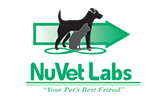Know How to Help Your Aging Pet
Know How to Help Your Aging Pet
One of the difficult aspects of having a pet is the brevity of their lives in comparison to your own. Dogs and cats become part of the family and losing them after only a decade, or two if you’re lucky, is never easy. There are ways to improve the quality of your pet’s life as they age, possibly lengthening the time you have with them.

How Pets Age
The popular theory of “one dog year is equal to seven human years” isn’t entirely accurate, although it gives a rough idea of the aging process for canines and even felines, to a certain extent. Dogs up to about 25 pounds age similarly to cats, while larger dogs tend to age more rapidly. The first 6 months of your pet’s life equate to 5 to 10 human years. By the time a kitten or puppy reaches their first birthday, they are about the equivalent of a 15 year old child. The second year ages most pets to about a human’s mid-20’s. From there, each pet year adds an average of 4 human years.
Dogs as a species average just over an 11-year lifespan. Cats are closer to 15 years. According to the ASPCA, dogs become “seniors” between their seventh and tenth birthdays, with the larger breeds reaching that milestone sooner. Cats reach their golden years at age 10 and above.
Signs of an Aging Pet
A graying muzzle and fur is a common sign of aging in dogs. Hearing tends to dull in older dogs and hours of sleep often increase. Cats become less active and also sleep more as they age. Both cats and dogs are susceptible to joint issues, which will affect their ability to walk, run, jump and play. Your vet may recommend a joint supplement like NuJoint Plus for an aging pet or a breed that has decreased mobility. Your pet may show an aversion to being touched if an age-related health concern is at work.
Dealing with an Aging Pet
Your dog is going to age relatively quickly in the grand scheme of things, so it’s important to be well informed about this process and understand the changes you will have to make as time goes on. If you have an adult pet who will be heading toward senior status in a few years, or your pet is currently enjoying the golden years of life, these tips can help you maneuver this time and allow you to provide your pet with the highest quality of life.
- Your furry friend is likely to suffer in silence as he ages. Increasing your veterinarian visits to twice a year is a proactive way to help your senior pet age gracefully. Be aware of changes in appetite, sleep patterns, activity level and verbal communications like whining or barking. These may indicate normal aging in a cat or dog, but it could be a more serious issue that your vet can address.
- Choose a senior pet food for your dog and feed your pet smaller meals at more frequent intervals throughout the day. Senior pet foods are formulated to be easier to digest for older dogs, and often contain ingredients that are designed to help older dogs with the consequences of aging.
- If you haven’t done so already, add a nutritional supplement to your dog’s diet. Supplements such as NuVet Plus and NuJoint Plus are designed to help aging pets as they enter this stage of life. These supplements provide dogs with all of the vitamins and nutrients that they need, and promotes joint health, bone health and immune system health.
- Add an extra blanket to your dog’s bed. Older dogs have a more difficult time regulating their own body temperature, and may feel cold more often.
- Continue exercising your dog on a regular basis, but understand your pet’s limitations during this stage of life. Take your dog on shorter walks, and be sure to walk them at a slow and comfortable pace.
An aging pet requires extra care and attention, as their health issues can have a significant impact on their daily lives. A nutritional supplement, such as the expert formula offered by NuVet Labs, can help dogs live long, healthy, happy lives. These supplements are designed to help boost a dog’s immune system, and can help strengthen the dog’s body for a better quality of life. Talk with your veterinarian to see if NuVet Plus or NuJoint Plus is the right supplement choice for your pet.
Learn more about how to help your pet by visiting the NuVet blog.

